- Home
- Chris Ryan
Murder Team Page 2
Murder Team Read online
Page 2
So who the hell was approaching now?
The same question had obviously occurred to Jack and Ed. They were looking nervously at each other.
‘Turn out the lights,’ Jack said. ‘It’s just a shack. If they think nobody’s home . . .’
No! Spud screamed in his mind. It’s daytime . . . they probably can’t tell the light is even on . . . but if someone’s watching they’ll notice if you turn it off . . . it’ll just confirm this room is occupied.
But all that came from his mouth was a slight groan.
‘Don’t worry, buddy,’ Ed said, his voice falsely cheerful. ‘It’s probably nothing.’
He switched off the light, then locked the door with a single internal deadbolt.
Spud felt himself sweating. He tried to move his legs, but it sent a shock of pain through his torso and he collapsed into his mattress.
Silence outside. The vehicle had come to a halt. Spud tried to estimate its distance. Not easy, but he put it at about twenty metres. He could feel his heart pumping loudly. He strained hard to hear what was going on outside.
A car door slammed. Jack and Ed stood with their backs to the wall on either side of the window.
Forty-five seconds passed. Fleetingly, Spud saw a shadow cross the newspaper-obscured window.
Twenty metres, forty-five seconds. It didn’t add up. Nobody walked that slowly. He’s circling the building, the voice in his mind shrieked. Checking for exits . . .
But Jack and Ed, standing either side of the window, hadn’t even seen the newcomer’s shadow.
Spud’s eyes were darting around the room, looking for something – anything – they could use as a weapon. On a metal shelving unit to the left of the window he saw a brown cardboard box of medical supplies. He knew there were needles in there. Not much match for a handgun, but better than nothing. He gathered up all the strength he had and tried to say the word ‘needle’.
All that came out was a barely audible whisper.
In his mind, though, Spud was yelling futile, unheard instructions. Whoever’s just found us could be armed . . . Get some needles . . . Stand either side of the door . . . Stab the first person who enters and grab their firearm . . .
The two doctors did nothing. They looked like they were holding their breath as they waited for something to happen.
Don’t just stand there! Don’t just fucking stand there . . .
Ten seconds passed.
Twenty.
The noise of the door being kicked in, when it finally came, was sudden and sharp. It shook the very walls of the rickety hut. The evening light flooded in. The figure – Spud could only assume it was the same one he’d seen circling the building – stood in the door frame. He had a neat goatee beard, short-cropped hair, tanned skin, a khaki hunter’s jacket, a khaki cap and a suppressed handgun – Spud couldn’t see what type – held at eye-level. One hand gripped the handle and caressed the trigger, the other surrounded its partner and kept it steady. This guy was a pro.
He was also neither African nor Middle Eastern. Spud’s heart leapt. Finally, someone had turned up to get him out of here . . .
But then he realised something was wrong. Just one guy? The Regiment would have sent a four-man unit at the very least.
It all happened in less than five seconds.
As the newcomer took in the contents of the room with a single glance, Spud summoned up another massive effort to move. All he managed to do was yank the tube leading up to the drip bag. The drip stand toppled and fell, jerking the cannula at an awkward angle so it twisted under Spud’s skin. Jack – seemingly instinctively – stepped forward to pick it up. That sudden movement meant he was the first to die. The noise of the round leaving the gunman’s weapon was like a fist rapping sharply on a wooden door. It entered the left-hand side of the doctor’s skull, spattering blood over Spud’s bed and halfway up the breeze-block wall and, at this close range, knocking the doctor back a full metre before he fell to the ground.
Ed cried out as the gunman took two steps into the room. But a second round from the handgun instantly cut short his shout of terror. He slid to the floor, and his catastrophic head wound painted a rough, dark red streak down the wall.
Spud made another attempt to move. One leg lolled precariously from the side of the bed. But that was all he could manage. He closed his eyes and waited for the third shot – the one that would end the life the two doctors had so carefully saved . . .
It didn’t come.
When he opened his eyes again, the gunman was standing over him. He had stretched out his gun and now slid the barrel – warm to the touch – down the stitches in his chest, as though confirming that this wound meant Spud was the person he was looking for.
Without any warning, he grabbed the drip pipe a couple of inches above the cannula and ripped it from Spud’s body. Spud winced, and felt blood spreading over the back of his hand. The gunman ripped the sheet from the lower part of his body. Spud was naked, except for the catheter that led from his urethra to the bag. Now the gunman grabbed this second pipe, and carelessly yanked it out. Spud inhaled sharply at the sudden, excruciating pain, but the gunman had already turned his back and was rummaging through the brown cardboard box of medical supplies.
Spud tried to move yet again. This time he managed to shift his right leg a few inches. The sound of the movement made the gunman turn immediately. Spud saw that he was carrying something: a needle, a syringe and a small brown vial of what Spud could recognised as liquid morphine. He felt himself grimacing. In the past few days he would have done anything for pain relief. Now he wanted to feel his pain, because pain meant he was still alive . . .
The gunman pierced the foil top of the morphine vial with the needle and sucked the colourless liquid up into the syringe. He dropped the empty vial carelessly on the floor, then approached Spud. Without a word, he dug the needle into Spud’s left arm and squeezed the syringe. Then he discarded the whole thing, stood back and watched, his head at an angle and an interested look on his face.
It took only seconds for the morphine to hit. A strange lassitude washed over Spud’s body. He could still feel the burning sensations where the cannula and the catheter had been ripped out, and of course the ever-present pain down the middle of his chest. He could still see the dead bodies of the two doctors, blood seeping from their head wounds. And of course he could still see the gunman, standing over him, his face grimly expressionless. But somehow he didn’t care about any of these things.
Spud closed his eyes. A second later, he felt the gunman hoisting him into a sitting position. From somewhere, clothes appeared – cloth pyjamas – and the gunman was dressing him. Now he forced Spud to stand. It was agony to walk, but the morphine pushed that agony to the back of his mind. He opened his eyes again and, with the help of the silent gunman, staggered toward the open door.
Outside, a blood-red sun was sinking toward the horizon over a bleak, parched landscape. As far as Spud could see, the terrain consisted of rough, hard-baked scrub covered with a layer of loose, stony sand. His left leg was stronger than his right, which trailed behind him in the sand, limp and useless. Twenty metres east of the tiny shack that had been his hospital and home for the past few days was a pale grey Land Rover. As they approached it, Spud noticed that although the chassis was dirty and dust-covered, the wheel hubs were gleaming clean. They reflected the setting sun, and the distorted image of the two men staggering toward them.
Where are we going? he tried to say. The sound that came from his mouth was breathless and incoherent. When they reached the vehicle, the gunman eased him into the back seat, strapping him in, no doubt so that his listless body would remain upright. Then he took the wheel, started the engine and revved it sharply before shooting away from the building.
3
18.30hrs EAT
It was almost fully dark. The African sky was black up above, indigo at the horizon – a clear background for silhouettes of the occasional gnarled acacia tree. Trigg
s’s black Land Cruiser trundled over the stony desert earth. They were two hours south west of Asmara, and to Danny’s eyes things weren’t looking good. They hadn’t seen a building or a human for the past ten miles. Now the terrain was deteriorating into an expanse of featureless, rough brush with no sign of habitation. All this on the basis of a vague tip-off from one of Triggs’s contacts. It was almost nothing to go on, but it was all Danny had.
‘Did you pay for this intel?’ he asked as the Land Cruiser hit a bump in what passed for a road, violently shaking the two passengers.
‘I’ll grease the right palms, if the intel’s good.’
‘Looks to me like your money’s safe,’ Danny said with a scowl.
They continued in silence for a couple of minutes.
‘There!’ Triggs said sharply. He nodded forwards.
Danny squinted toward the horizon. He cursed himself for not having observed it before his companion. There was the rectangular black outline of a small building. It was hard to judge distances in this light, but he reckoned it couldn’t be more than a mile away.
‘Stop,’ Danny said. Triggs hit the brakes. ‘Kill the lights.’ Triggs was already on the point of doing so. ‘Approach slowly. Low gear. Keep the engine noise down.’
Triggs moved off again at a crawl. Danny took his Browning from its holster and gave it the once-over. Not his firearm of choice, but it would do. He cocked the weapon, then locked it safe before lowering his window.
‘There’s a light on,’ Danny breathed as they got within half a mile. He could make out a faint halo around the building. It looked as though the light source was on the far side.
Seconds later, it flickered off.
‘Someone knows we’re coming?’ Triggs asked.
Danny narrowed his eyes. ‘Maybe. Keep going.’ He stared hard through the windscreen, panning the area from left to right, super-alert for any sign of movement. There was none.
They stopped twenty metres from the building. Triggs killed the engine.
The silence was sudden and deep.
Triggs withdrew a handgun of his own. ‘Any dead bodies, boy,’ he breathed, ‘and you dig the hole. Just so we’re clear.’
Danny didn’t respond. He opened the passenger door and, unlocking his weapon and holding it two-handed, approached the building. His footsteps were almost silent. So were Triggs’s, who was following a couple of metres behind and to his right. Five metres from the building Danny jabbed one hand to the right, indicating that Triggs should follow that direction. Danny himself went left.
Close now, he could tell that the building was a breeze-block shack, about ten metres in length. As he skirted around the left-hand end of the building, he passed an old electricity generator. It was quiet, smelled of fuel and was warm to the touch. Danny surmised that it had just cut out, which would account for the loss of light. But had someone switched it off, or had it failed on its own?
He carefully turned the corner. There was a window along the far side of the building. Danny crouched down as he passed it, but he noticed that the inside panes were covered with newspaper.
Triggs was waiting for him at the other end. He was standing, weapon raised, about seven metres from the door to the building. The door was wide open.
Danny stood by the open door, back against the wall, breathing slowly. He nodded at Triggs. Then, weapon poised, he turned and faced the interior of the building.
His eyes picked out certain features in the darkness. A bed along the wall opposite the window. A metal shelving unit.
And two dead bodies.
Danny felt his stomach twisting. He stepped into the room, checking all four corners for threats as he did so. None. ‘Clear!’ he called. Seconds later, Triggs was there, pulling a small, bright torch from his pocket. He shone it into the faces of the dead bodies.
‘White,’ he said tersely. ‘Either of them your mate?’
Danny shook his head. He felt the knot in his stomach subsiding. ‘Give me that,’ he said, and he grabbed the torch from Triggs’s grasp. He shone it round the room, letting it linger momentarily on the upturned drip stand that lay across the floor, and the faint depression on the mattress of the unmade hospital bed.
At the end of the bed was a plastic box. Danny opened it and found a khaki-coloured T-shirt, stained with blood and with a hole ripped in the front to access a chest wound. Danny recognised it as Spud’s.
‘My mate was here,’ he said.
Triggs was leaning over one of the corpses. ‘These bodies are still fresh,’ he said. ‘Two or three hours max.’
Danny’s mind had already moved on. He was crouching on the ground, shining the torch across the floor. He found what he was looking for five minutes later: a spent cartridge, 9mm.
‘Let me see that,’ Triggs said.
Danny handed it over and illuminated it with the torch. Triggs examined it for a few seconds. ‘See that?’ he said. His fingertip underlined a code etched in tiny writing at the base of the cartridge: it read ‘BOF’. Danny recognised it for what it was: the cartridge’s head stamp, a tiny identification marker that indicated where the ammunition was made.
‘Mean something to you?’ Danny asked.
‘Damn right it does. BOF stands for Bangladesh Ordnance Factory.’
Danny gave him a suspicious look. ‘What are you?’ he said. ‘Some kind of ballistics nerd?’
‘Not really. But I know that head stamp. Only two guys in these parts use that ammo, far as I know.’
Danny gave him a sharp look. ‘How can you be so sure?’
Triggs shrugged as he stood up. ‘One of them’s me. The other’s a friend of mine.’ He shot Danny a defensive look. ‘What do you want me to say, boy? I can’t just stroll into the armoury at Hereford these days. I’m a businessman, the ammo’s cheap, I know a guy who’ll send it anywhere . . .’ He turned his back on the scene and walked out of the building. ‘Bring that torch,’ he called over his shoulder. ‘We need to check for tracks.’
Danny strode out of the building and directed the torch at the ground. The terrain was hard and dry – the worst type of ground for tracking – but there was a thin, patchy covering of dusty sand which accepted footprints here and there. In about thirty seconds Danny found something: a pair of boot prints and, next to it, the indentation of a human foot, with a long channel to its right, as though something had been dragged alongside it.
He followed the tracks for about fifteen metres until he came to a new marking: a set of thick wheels, heading east.
‘Your buddy,’ Danny called back to Triggs. ‘What does he drive?’
‘Land Rover,’ came the reply.
Danny nodded. ‘Spud was here,’ he said. ‘Whoever killed those two guys helped him into a vehicle. Spud had difficulty walking and dragged his right foot in the sand.’
‘Helped him into the vehicle?’ Triggs said. ‘Or forced him?’
‘You tell me. What kind of guy is this mate of yours?’
‘Not a helpful kind. He wouldn’t be out here unless someone was paying him well. I’m guessing Spud didn’t have much money on him?’
Danny shook his head.
‘Then my guess is he came here to abduct him. The two stiffs in there are collateral damage. A wounded British soldier would be a valuable commodity for certain people in these parts.’
What people? Danny was on the point of asking. But he didn’t get the chance. At that moment there was a ringing sound from the other side of the building. The two men glanced at each other. Then, firmly gripping their weapons, they eased round the building. The ringing sound was coming from Triggs’s Land Cruiser. Inside it, there was a pale glow. It was the sat phone.
Triggs ran toward the vehicle. Danny followed carefully. He didn’t like the surprised look on his companion’s face. Something was wrong.
He waited at a distance of ten metres while Triggs entered the vehicle and picked up the handset. The ringing stopped. Triggs kept the handset to his ear for about fifteen se
conds. Then he laid it carefully on the dashboard and stepped outside the car again. He was frowning. His face was full of suspicion.
‘It’s for you,’ he said.
4
‘What the hell do you mean, it’s for me?’
‘Which bit don’t you understand, boy?’ His face darkened. ‘I thought nobody knew you were here.’
‘Nobody does.’ But he realised, as he said it, that it couldn’t be true. ‘Who have you told?’ he demanded. He felt his blood pumping hot as he strode up to his companion and jabbed the heel of his free hand into his chest.
The older man stayed calm. ‘Easy boy,’ he wheezed in his strange half-voice. ‘If I was you, I’d stay on the right side of the only dude in the country who can help you. Answer the fucking phone call.’
Danny cursed under his breath. He stepped away from Triggs, perched on the side of front seat and grabbed the handset. ‘Who’s this?’ he said.
A three-second pause. Then a female voice: ‘Patching you through to Hereford now. Wait out, seconds ten . . .’
Hereford? How the hell . . .
Before the ten seconds were out, another voice came on the line. Male. ‘This is an unencrypted line. Be mindful.’ Danny recognised the voice of Major Ray Hammond, ops officer in Hereford.
‘How the hell did you find me?’ he said.
‘The Firm never lost you. They’ve had eyes-on since you left home. And the bloke who’s phone you’re talking into?’ Hammond was studiously avoiding the use of anyone’s actual names. ‘You think he’s the only former military asset living in your location? The Firm keep tabs on these people.’
Danny remembered the white guy whose gaze he had locked back at the airport, and cursed himself for not being more careful.
‘I’m not coming back,’ Danny said. ‘I’ve got a job . . .’
‘Shut up and listen. We know who you’re trying to find. We’re trying to find him too.’

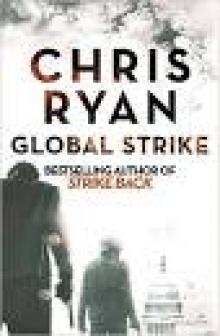 Global Strike
Global Strike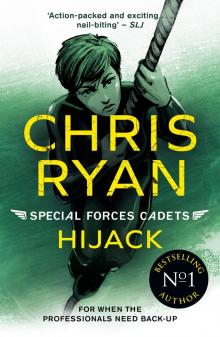 Hijack
Hijack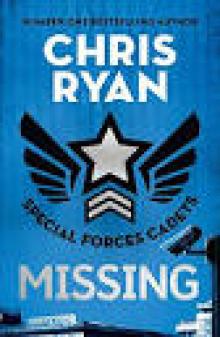 Special Forces Cadets 2
Special Forces Cadets 2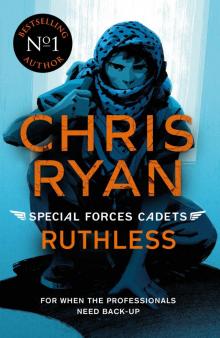 Ruthless
Ruthless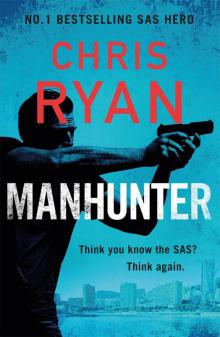 Manhunter
Manhunter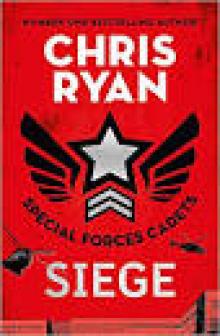 Special Forces Cadets 1
Special Forces Cadets 1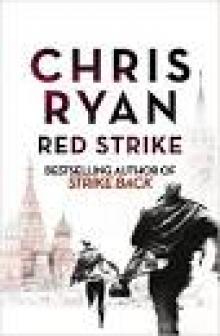 Red Strike
Red Strike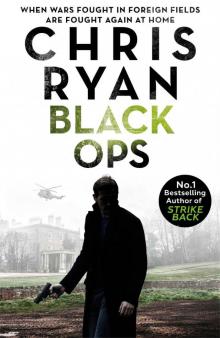 Black Ops
Black Ops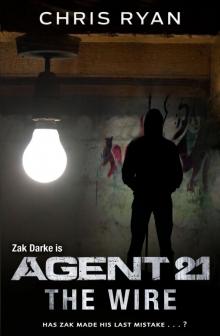 Agent 21: The Wire
Agent 21: The Wire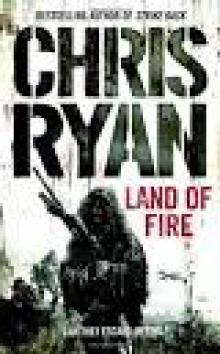 Land of Fire
Land of Fire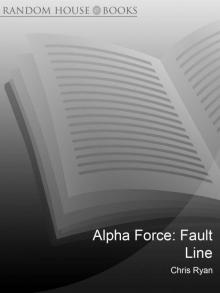 Alpha Force: Fault Line
Alpha Force: Fault Line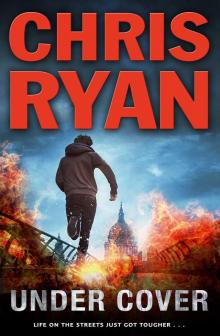 Under Cover (Agent 21)
Under Cover (Agent 21)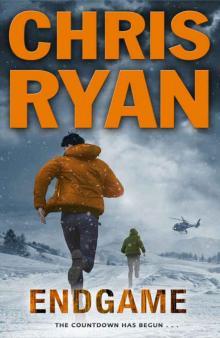 Endgame (Agent 21)
Endgame (Agent 21) Red Centre
Red Centre Blackout
Blackout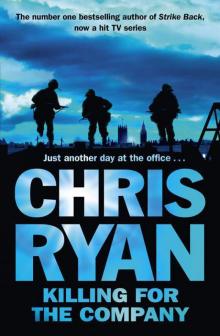 Killing for the Company
Killing for the Company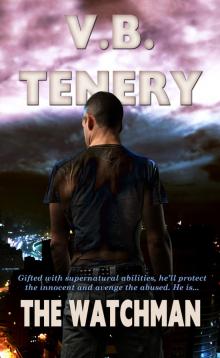 The Watchman
The Watchman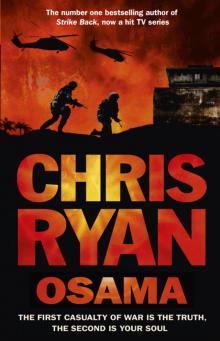 Osama
Osama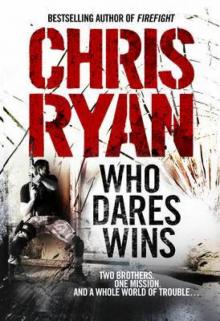 Who Dares Wins
Who Dares Wins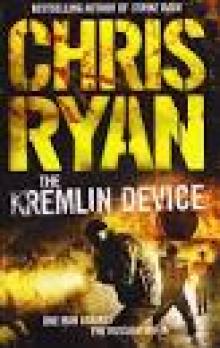 The Kremlin Device
The Kremlin Device Hunter Killer
Hunter Killer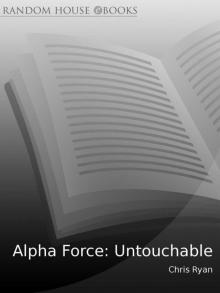 Alpha Force: Untouchable
Alpha Force: Untouchable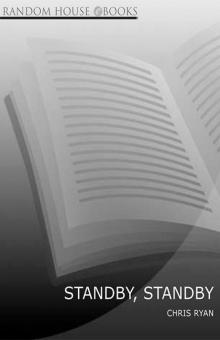 Stand By Stand By
Stand By Stand By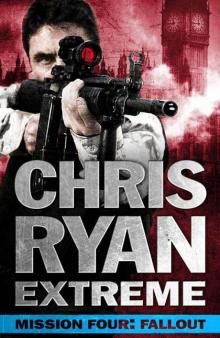 Chris Ryan Extreme: Hard Target: Mission Four: Fallout
Chris Ryan Extreme: Hard Target: Mission Four: Fallout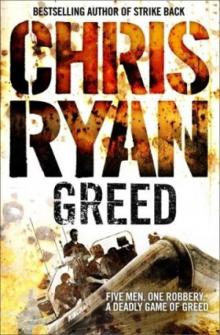 Greed mb-1
Greed mb-1 Alpha Force: Desert Pursuit
Alpha Force: Desert Pursuit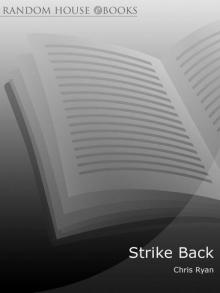 Strike Back
Strike Back Greed
Greed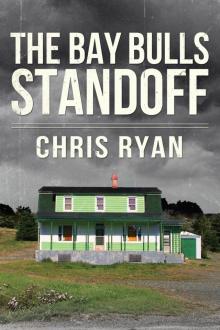 The Bay Bulls Standoff
The Bay Bulls Standoff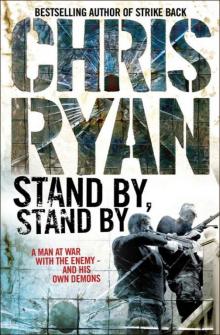 Stand By, Stand By gs-1
Stand By, Stand By gs-1 Outbreak
Outbreak Hunted
Hunted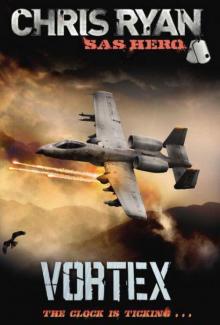 Vortex cr-4
Vortex cr-4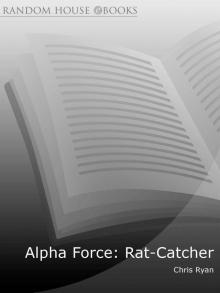 Rat-Catcher
Rat-Catcher Vortex
Vortex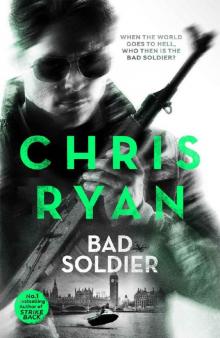 Bad Soldier
Bad Soldier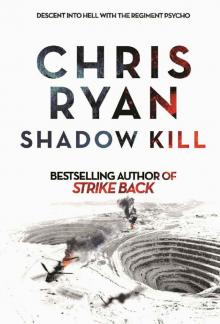 Shadow Kill: A Strikeback Novel
Shadow Kill: A Strikeback Novel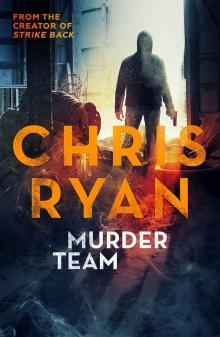 Murder Team (Kindle Single)
Murder Team (Kindle Single) One Good Turn
One Good Turn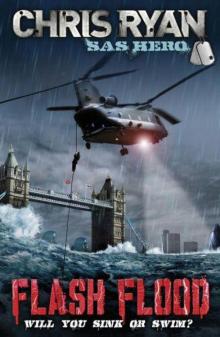 Flash Flood cr-1
Flash Flood cr-1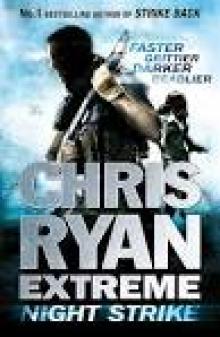 Night Strike
Night Strike Wildfire
Wildfire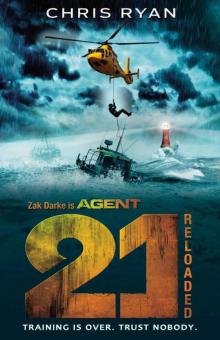 Agent 21: Reloaded: Book 2
Agent 21: Reloaded: Book 2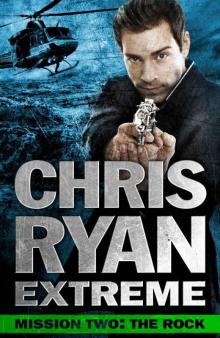 Chris Ryan Extreme: Hard Target: Mission Two: The Rock
Chris Ryan Extreme: Hard Target: Mission Two: The Rock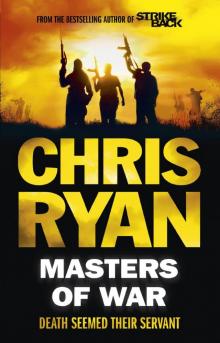 Masters of War
Masters of War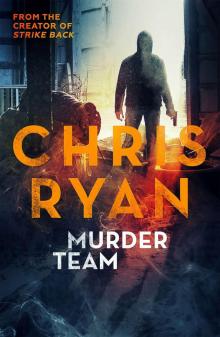 Murder Team
Murder Team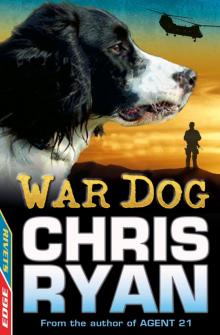 War Dog
War Dog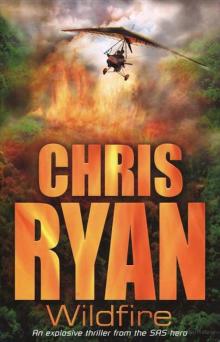 Wildfire cr-2
Wildfire cr-2 Survival
Survival The One That Got Away - Junior edition
The One That Got Away - Junior edition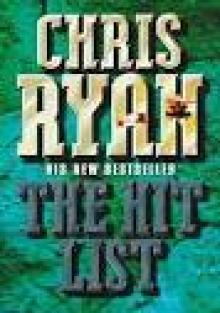 The Hit List
The Hit List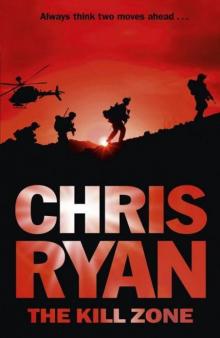 The Kill Zone
The Kill Zone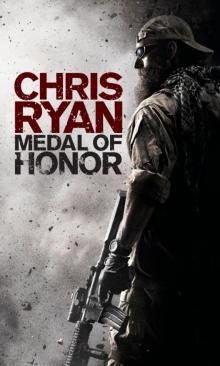 Medal of Honor
Medal of Honor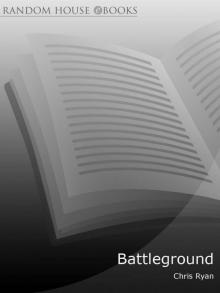 Battleground
Battleground Twister
Twister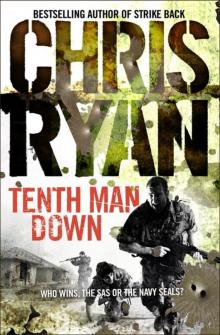 Tenth Man Down gs-4
Tenth Man Down gs-4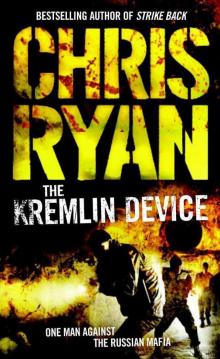 The Kremlin Device gs-3
The Kremlin Device gs-3 Hostage
Hostage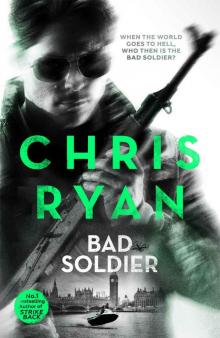 Bad Soldier: Danny Black Thriller 4
Bad Soldier: Danny Black Thriller 4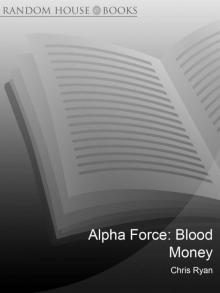 Alpha Force: Blood Money
Alpha Force: Blood Money Firefight
Firefight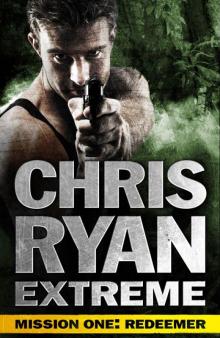 Chris Ryan Extreme: Hard Target: Mission One: Redeemer
Chris Ryan Extreme: Hard Target: Mission One: Redeemer Hit List
Hit List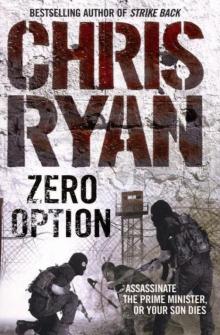 Zero Option gs-2
Zero Option gs-2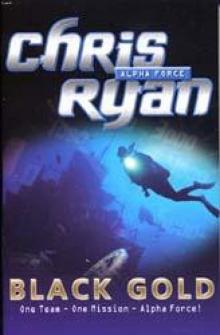 Black Gold
Black Gold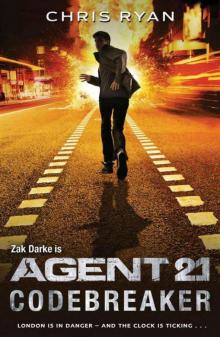 Agent 21: Codebreaker: Book 3
Agent 21: Codebreaker: Book 3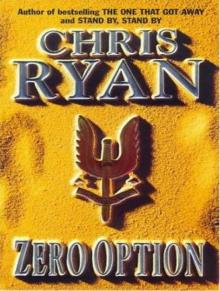 Zero Option
Zero Option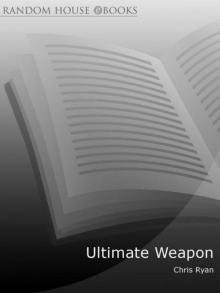 Ultimate Weapon
Ultimate Weapon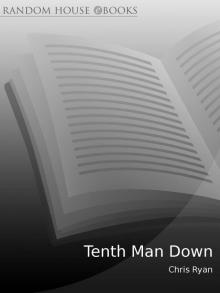 Tenth Man Down
Tenth Man Down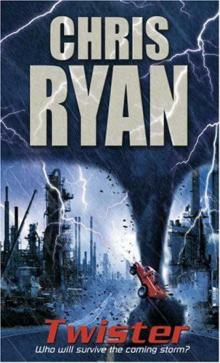 Twister cr-5
Twister cr-5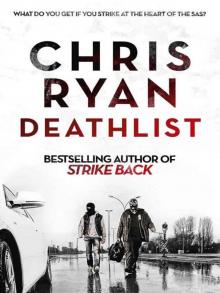 Deathlist
Deathlist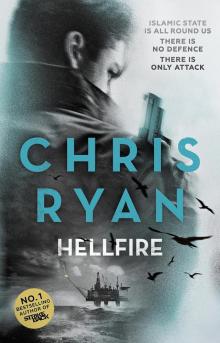 Hellfire
Hellfire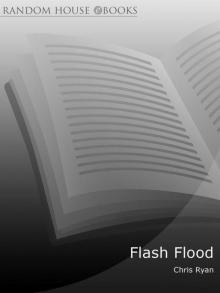 Flash Flood
Flash Flood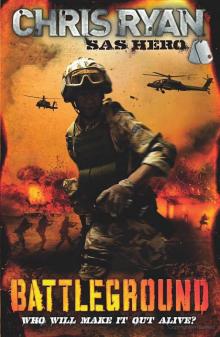 Battleground cr-6
Battleground cr-6 The Increment
The Increment